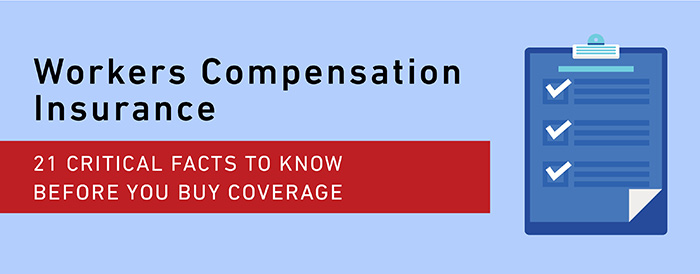Business owners face many day-to-day challenges when trying to build a successful company. They’re improving their own prospects and trying to do the same for others too. Every employee needs to feel valued. Part of this means considering what would happen in the event that workplace injuries occur. How can employers make sure their employees are safe and protected? It’s a subject that needs to be given due diligence.
Why is workers’ compensation insurance needed?
According to the common law system, any business owner who employs staff has five legal obligations to them. These are:
1. safe place to work
2. safe tools to carry out jobs
3. other colleagues must be competent and not put anyone else at risk
4. an established set of workplace safety rules put in place and enforced
5. warn workers of any dangers in the workplace.
Workers who are employed by a company can sue if any of these five regulations aren’t adhered to, and as a result of this non-compliance, an accident or injury has occurred. Schemes such as workers’ compensation insurance protect employers and employees and ensure that anyone injured receives a payout that’s commensurate with the type of injury sustained.
Making a claim
Workers who have unfortunately found themselves in a situation like this will need to be able to prove that a law has been violated in order to sue. In these cases, workers’ compensation insurance will make a payout based on the injury sustained – payments for such cases are usually reasonable and promptly made.
This type of insurance is the best way to make a claim for a workplace injury. It’s always better for the employee to use the workers’ compensation system – rather than having to go to the time and expense of filing a general civil lawsuit.
Options for getting workers’ compensation insurance
There are three different types of workers’ compensation insurance and each one is a little different depending on the state. It’s always worth checking the rules and regulations where you live.
- The first is what’s known as Private Carriers. When a company or business uses a broker to find the right quote – and the right needs for them. The broker is then paid a fixed amount each month for insurance cover.
- The second is a State Fund. When the insurance is handled by the state – which can vary across the country. Some states make it compulsory, others allow it only as an option to take up.
- The third is Self-Insurance. Most often used by very large multinational companies, and it means they’ve their own insurance fund to be paid into – allowing them to handle the payment of claims when they’re made.
Conclusion
The state has a lot of powers in the event that businesses fail to take out workers’ compensation insurance – or don’t get an adequate level of cover. They can stop companies from trading or working and issue fines for violating worker’s laws. In some states, employers can face time in jail for these offenses. Employers should never avoid taking out a workers’ compensation insurance policy.

